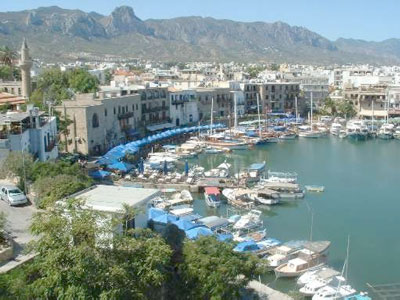Cyprus is one of those places often overlooked by travellers or ‘must see’ list makers because it can be difficult to classify where it sits geographically. While it lies closest to the Middle East and has been controlled by the Ottomans and the British, it shares much of its history and culture with that of Greece – yet has a distinct flavour entirely unto its own. Simply put, if you think you know what Cyprus in 2012 has to offer, you are likely mistaken and should check it out for yourself!
As an island in the Mediterranean Sea, Cyprus has a colourful history that has been influenced by its neighbours as they have struggled together. Even to this day the island country is not entirely unified as tensions that erupted between Cyprus and Turkey resulted in a Turkish occupation of the northern portion of the island. Resulting from this, as can be expected, is a living situation that is often confrontational between the two sides.
One might be surprised to learn that although Cyprus occupies a place in the normally warm Mediterranean Sea, it is possible to have snow fall on many parts of the island. The Troodos mountains in the central part of the island are of a high enough elevation that the normally wet climate can drop far enough to give way to quite a spectacular winter scene while the rest of the island enjoys fairly mild winters.
Water wells found on Cyprus are among the oldest in the world for the pure and simple reason that the country’s ground water source is extremely limited, presenting an ongoing problem to human settlements. On top of being interesting historical sites, the wells and the water situation as a whole is important to note for travellers to the island as water shortages are quite common. Depending on the rainfall for the year, water could be difficult to come by and decently expensive.
Places of interest that should be checked out by all who visit include the archaeological site at Khirokitia, a World Herritage Site, and the old city of Paphos. Discovered in 1934, the village at Khirokitia dates back to nearly 7000 BCE during the Neolithic Age, when it was occupied off and on – in one case abandoned for almost 1500 years – until 4000 BCE. It is considered by many to be the first known culture in Cyprus.
The old portion of Paphos is home to a 1200 seat stone amphitheatre and castle of an age long gone by. With so close of ties to ancient Greece, it is not surprising that much of the island involves some reference to the gods of that time, ranging from pre-Hellenic fertility deities to the more recognizable ones, like Aphrodite, who is believed to have been born of the sea around Cyprus.
Despite their challenges, Cyprus is a vibrant and exciting place with interesting historical sites and a culture that can’t be beat – a definite must-see for any traveller to check out in 2012 and beyond.



No Comment